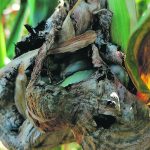German researchers find five genes that the Ustilago maydis fungus uses to manipulate a corn plant’s signalling pathway
Researchers at Germany’s University of Bonn have identified five genes in the fungus Ustilago maydis that cause the disease corn smut. Corn smut causes kernels to swell into tumour-like galls whose tissues and texture are like mushrooms. They can grow from about six inches to the size of a child’s head. The galls are made […] Read moreStories by Freelance writer
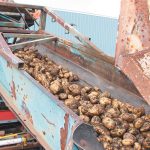
Scientists watch rapidly mutating crop-infecting bacteria

Grass-finished beef all about forage
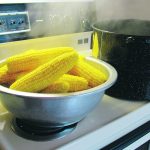
Corn season brings fond memories
The generosity of a neighbour at harvest time meant this farm family was able to gather up all the cobs they could eat
By late autumn I had eaten my fill of toasted tomato sandwiches and bowls of cucumbers chopped up with sour cream and onions, but I never got enough corn on the cob, and so I looked forward to the yearly corn feed. It seemed to me that it always happened rather spontaneously. About the time […] Read more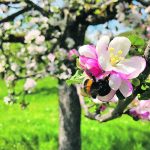
Antibiotic spray affects bumblebee cognition
Researchers determine that a common treatment for fire blight in fruit orchards can hurt the pollinator’s foraging ability
In recent years, the use of streptomycin antibiotic spray has increased as orchard farmers fight a rise in plant bacterial infections caused by pathogens such as Erwinia amylovora. Fire blight can turn blossoms and shoots of apple and pear trees black, making them look like they were scorched by fire. Citrus greening, also known as […] Read more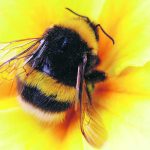
Climate change hits bumblebees as world warms
Researchers find that 37 of 46 species showed greater declines or less responsive increases due to rising temperatures
Recent research from Simon Fraser University in Burnaby, B.C., suggests that the greatest negative influence bumblebees face from climate change are changes in temperature, which could affect the insects even more than precipitation changes or changes in the flower types. The study focused on the historical changes driven by climate change and rising temperatures over […] Read more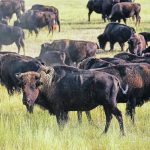
Cattle genes in bison unable to hide
Previous research found cattle genes in most bison, but advanced genomics discovers more widespread presence
According to a new study by scientists at Texas A&M University, all bison in North America carry multiple small, yet identifiable regions of DNA that originally came from cattle. The research confirms there are, in fact, no purebred bison on the continent. “I did genetic bison research 20 years ago and, at that time, it […] Read more
Farmers packed prized wheat on trip to their new home
Mennonite families often brought trunks full of Turkey Red wheat with them when they emigrated to North America
In a big, red hip-roof barn on a Saskatchewan farm there once stood a sturdy homemade trunk. It had contained some of the family belongings when Dietrich and Elizabeth Barkman homesteaded in 1906 in the Flowing Well district of the province. Emptied of its contents, the trunk was stored in the barn for decades. My […] Read more
New school term starts with trip to the bookstore
The boredom of summer on the farm could only be broken by the return to school, and then something better happened
By the middle of August, the swimming hole was no longer inviting, having shrunk in diameter and depth as the little creek that fed it gradually decreased in volume. Harvest preparations were in full swing, meaning my mother no longer had time to go for long walks with me out the country lane. Friends with […] Read more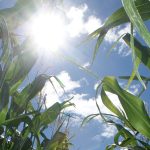
Ag adjustments urged to mitigate climate change
U.S. researcher says big shifts are needed in what and how food is grown to keep agriculture sustainable and resilient
Farmers continue to consider ways to adapt agricultural practices to mitigate the consequences of climate change on their operations. According to Agriculture Canada, global climate models confirm the future will be warmer with more extreme weather events. Climate records show that the Earth has been heating for the past century and 17 of the 18 […] Read more
